Disclosure: This article contains affiliate links. We may earn a commission from purchases at no extra cost to you, which helps our travel content.
The cacophony of Kinshasa hits you like a symphony of organized chaos—motorcycle taxis weaving through traffic, vibrant fabric vendors calling out prices, and the unmistakable rhythms of Congolese rumba floating through the air. This sprawling metropolis on the banks of the mighty Congo River defies simple categorization, much like the intricate clay vessels I've studied around the world. After decades exploring ceramic traditions across continents, Kinshasa beckoned with its unique artistic heritage and resilient spirit that has flourished despite—or perhaps because of—its complex history.
The Artistic Soul of Kinshasa
Kinshasa's artistic landscape reveals itself gradually to those willing to look beyond the city's challenging exterior. My journey began at the Academy of Fine Arts, where I spent a morning with Professor Makala, a ceramicist whose work combines traditional Congolese motifs with contemporary forms. The students' enthusiasm reminded me of my own apprenticeship in Oaxaca fifteen years ago—that hunger to connect with cultural roots while pushing creative boundaries.
The true revelation came at the Art Market near Matonge district, where I discovered artisans working with locally-sourced clay to create both functional pieces and sculptural works that speak to Congo's complex narrative. One potter, Emmanuel, demonstrated techniques passed down through generations, his weathered hands coaxing extraordinary forms from simple earth. I couldn't resist purchasing several pieces, carefully wrapping them in the compression packing cubes I always bring for fragile souvenirs.
For serious art enthusiasts, the galleries along Avenue du Port showcase established and emerging Congolese artists. I was particularly moved by the work at Texaf Bilembo Cultural Center, where contemporary artists grapple with themes of identity, colonialism, and urban life through various mediums.
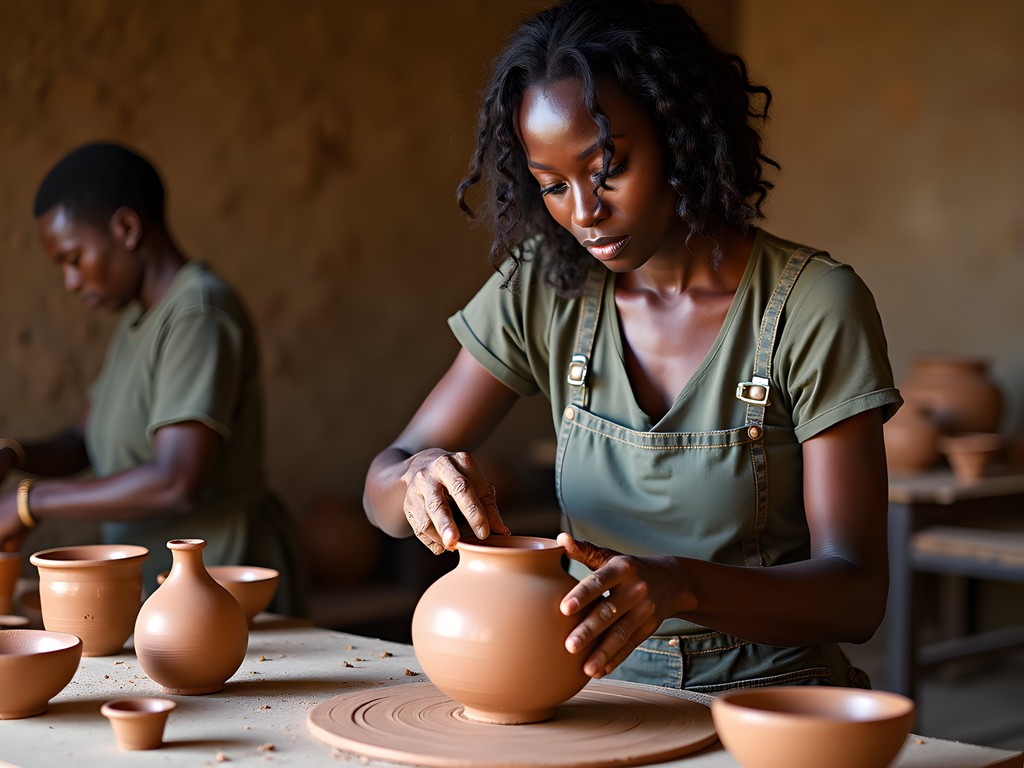
💡 Pro Tips
- Visit the Academy of Fine Arts on weekday mornings when students are working in the ceramic studio
- Negotiate respectfully at the Art Market—prices are flexible but remember the value of handcraft
- Bring small US dollar bills for art purchases as change can be difficult to come by
Brewing Traditions: Congo's Emerging Craft Beer Scene
While Belgium's colonial legacy left a taste for European lagers, a small but passionate craft beer movement is taking root in Kinshasa. As someone who has explored brewing traditions from Belgium to Japan, I was intrigued to discover Bracongo, the city's oldest brewery, now experimenting with local ingredients like cassava and tropical fruits.
Through connections with a local beer enthusiast I met on a brewing forum, I gained access to Bralima Brewery, where master brewer Jean-Pierre is creating small-batch experimental brews that wouldn't be out of place in Portland or Brussels. We spent an afternoon discussing fermentation techniques adapted to tropical climates—a fascinating technical challenge that requires innovation and respect for scientific principles.
For those wanting to sample local brews, I recommend carrying a insulated growler to keep beverages cool in Kinshasa's equatorial heat. This proved invaluable during an impromptu tasting session at a small microbrewery in N'djili district, where I tried a promising sorghum-based ale with notes of banana and clove reminiscent of German hefeweizens.
While craft beer culture remains nascent here, the enthusiasm of young Congolese brewers signals a renaissance that merges international techniques with local agricultural traditions—a pattern I've observed in emerging beer scenes worldwide.
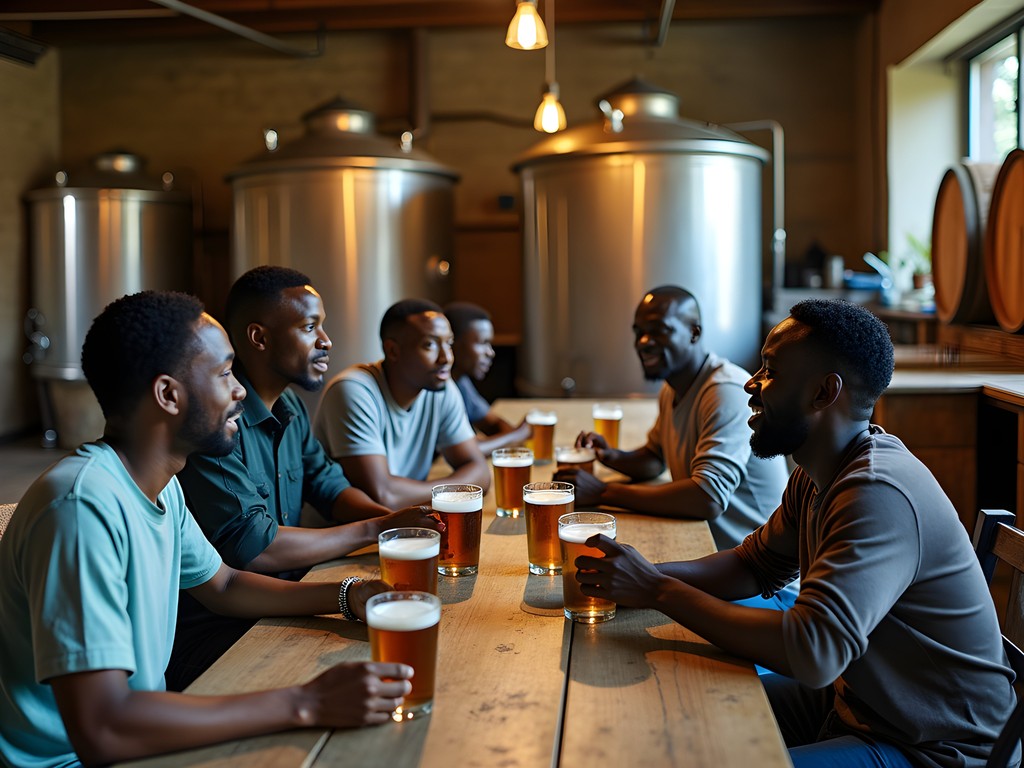
💡 Pro Tips
- Contact breweries in advance as formal tours are rare but can be arranged through personal connections
- Try Tembo and Primus for traditional Congolese lagers widely available throughout the city
- Visit Bracongo on weekday afternoons when production is in full swing
Navigating Kinshasa's Urban Landscape
Kinshasa demands both patience and preparation. The city's infrastructure challenges can test even seasoned travelers, but the rewards for persistence are immense. I found my portable power bank indispensable during frequent power outages, allowing me to keep navigation tools and translation apps functioning throughout long days of exploration.
Transportation requires strategic thinking—a skill from my consulting days that serves me well while traveling. Rather than relying on unpredictable public transport, I arranged a driver through my hotel for weekly excursions, supplementing with motorcycle taxis (locally called "wewa") for shorter journeys. This hybrid approach balanced cost efficiency with time management.
The sprawling Central Market offers a sensory immersion into daily Kinshasa life, though I recommend bringing a anti-theft sling bag to keep valuables secure while navigating crowded areas. Here, the textiles captured my attention—vibrant wax prints that tell stories through pattern and color, not unlike how ceramics communicate through form and texture.
Despite its challenges, Kinshasa's streets pulse with entrepreneurial energy that speaks to the resilience I've observed in post-conflict societies across my travels. Street vendors transform recycled materials into functional art, musicians create studios in modest apartments, and craftspeople adapt traditional skills for contemporary markets—all testaments to human creativity under constraint.
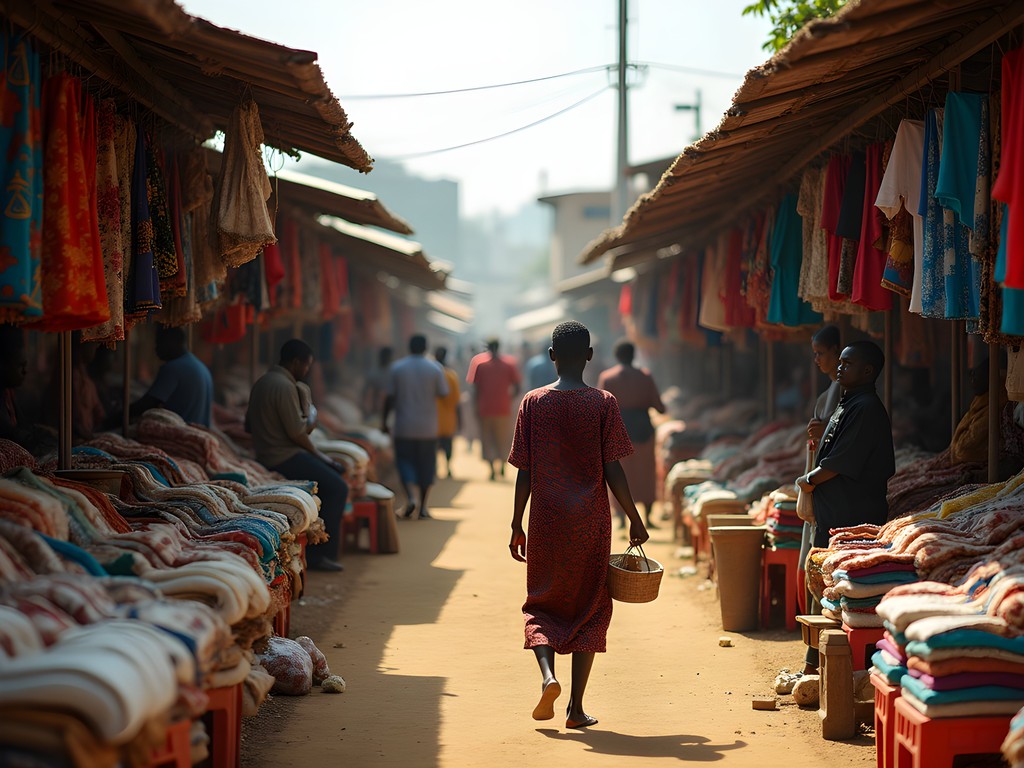
💡 Pro Tips
- Arrange transportation through reputable hotels rather than hailing taxis on the street
- Carry small denominations of clean US dollars alongside Congolese francs
- Download offline maps before arrival as internet connectivity can be unreliable
Cultural Immersion Through Cuisine and Music
My strategic approach to understanding cultures begins with two universal languages: food and music. In Kinshasa, both offer profound insights into Congolese identity and history.
The city's culinary landscape reveals influences from across Central Africa, with riverside restaurants serving fresh fish from the Congo River prepared with complex spice blends. At Maman Colonel's small eatery in Bandal district, I watched as she prepared liboke—fish wrapped in banana leaves and steamed to perfection—using techniques that reminded me of the earth-firing methods I'd studied in traditional ceramics.
To navigate food markets and communicate with local vendors, I relied heavily on my pocket translator device, which handled Lingala phrases I couldn't master despite my pre-trip language studies. This technological assistance allowed for deeper conversations about cooking techniques and ingredient sourcing than would otherwise have been possible.
Kinshasa's legendary music scene remains its most accessible cultural expression. The sounds of soukous and rumba pour from neighborhood bars called terrasses, where I spent evenings analyzing the intricate guitar patterns while sipping on local Tembo beer. For serious music enthusiasts, I recommend bringing a portable bluetooth speaker to share music with new friends—a practice that initiated several fascinating cross-cultural exchanges about American jazz and Congolese rumba.
At the iconic Chez Ntemba nightclub, I witnessed how music transcends Kinshasa's socioeconomic divisions, with people from all walks of life united in celebration—a phenomenon I've observed from Oaxacan pottery villages to Belgian brewing towns, where craft traditions similarly bridge social divides.
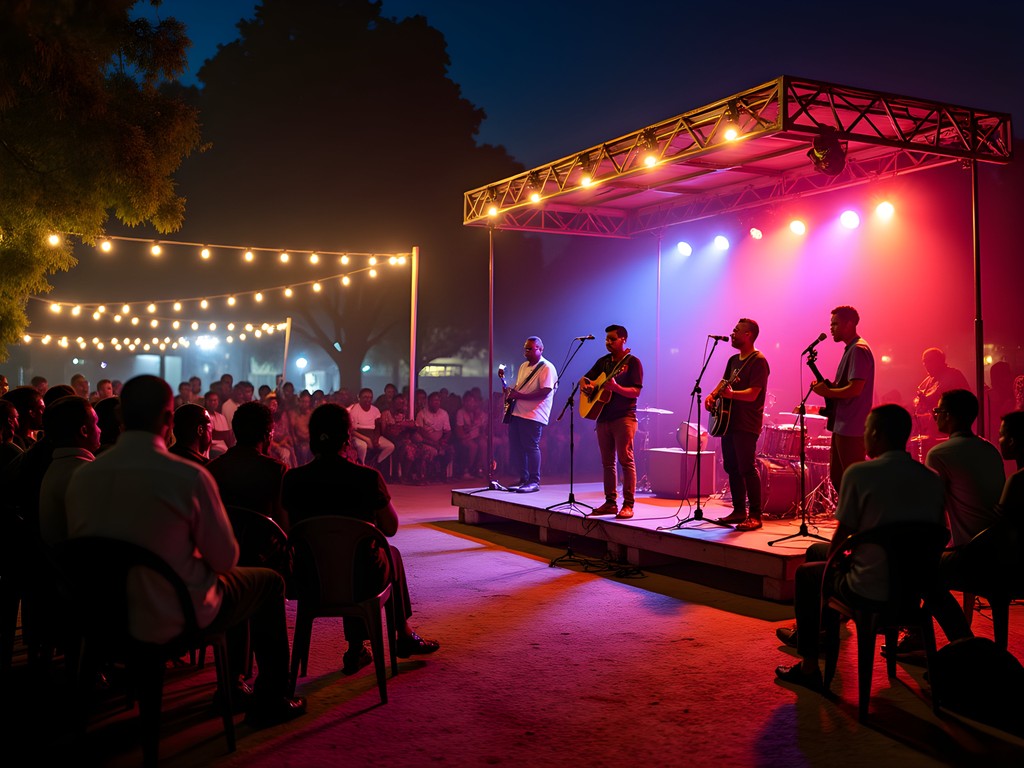
💡 Pro Tips
- Try *pondu* (cassava leaves) and *fufu* (cassava dough) at local restaurants for authentic Congolese flavors
- Visit *terrasses* in Matonge district for the best live music, typically starting after 9pm
- Ask permission before photographing performers or food preparation
Final Thoughts
Kinshasa defies easy categorization—it's a city of striking contrasts where artistic brilliance emerges from challenging circumstances, much like the transformative process of clay becoming ceramic through fire. My week here barely scratched the surface of Congo's cultural wealth, but it reinforced my belief that understanding craft traditions provides unique insights into a society's soul.
As I carefully packed my ceramic treasures and notebooks filled with brewing observations for the journey home, I reflected on how Kinshasa's artists and craftspeople maintain cultural continuity while embracing innovation—a balance I've sought in my own post-corporate life. For travelers willing to venture beyond conventional destinations, Kinshasa offers profound lessons in resilience, creativity, and the enduring human drive to create beauty against all odds.
Whether you're drawn to the rhythms of Congolese music, the emerging craft beer scene, or the tactile traditions of local ceramics, come with an open mind and a strategic approach to navigation. The rewards—deep cultural connections and perspectives that challenge Western narratives—are immeasurable. As we say in both pottery studios and brewing circles: the most interesting results often emerge from the most challenging processes.
✨ Key Takeaways
- Kinshasa's art scene reveals profound resilience and creativity despite infrastructural challenges
- Emerging craft beer culture blends Belgian colonial influence with indigenous ingredients and techniques
- Strategic planning and local connections are essential for meaningful cultural immersion
- The city's music and culinary traditions offer accessible entry points to understanding Congolese culture
📋 Practical Information
Best Time to Visit
Dry season (May-September) offers more comfortable exploration conditions
Budget Estimate
$75-150 per day including mid-range accommodation, transportation, and activities
Recommended Duration
Minimum 1 week to appreciate the city's complexity
Difficulty Level
Intermediate
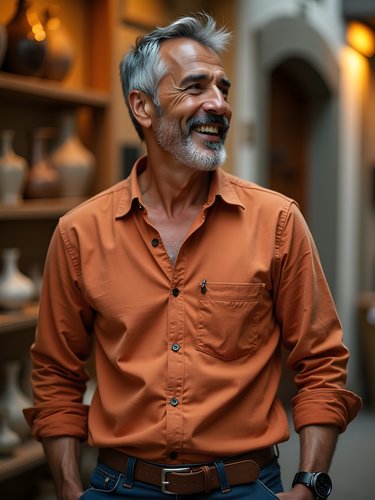

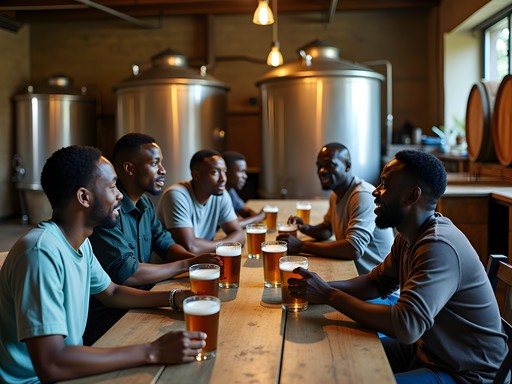
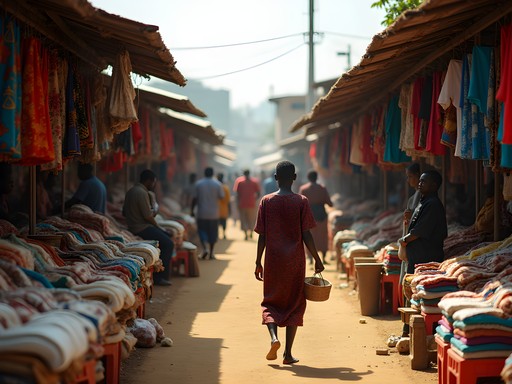
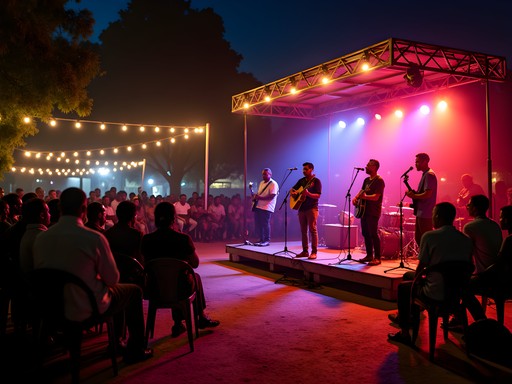


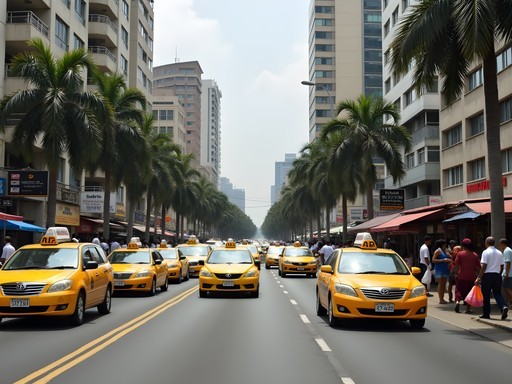
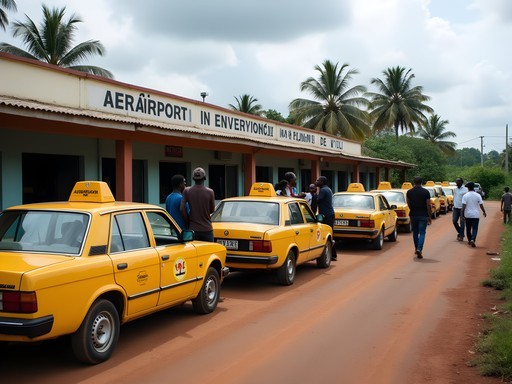
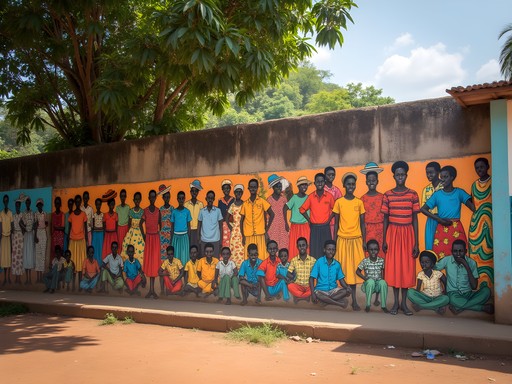
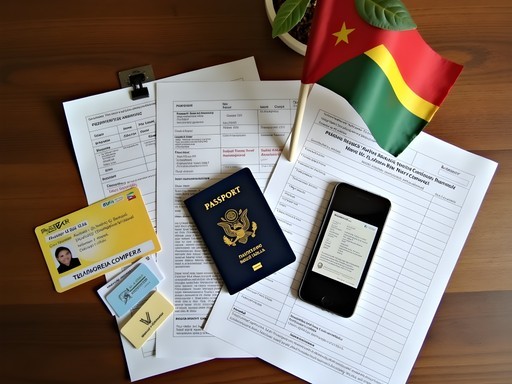
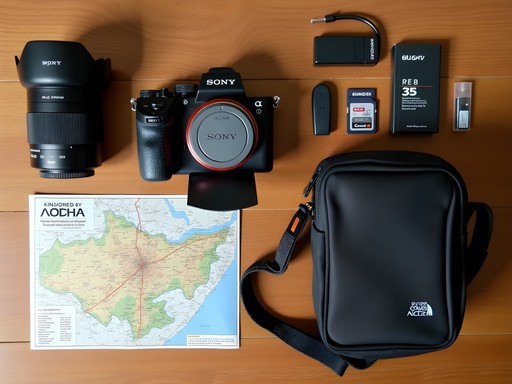
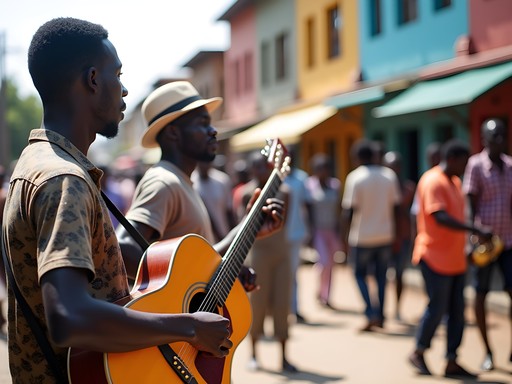
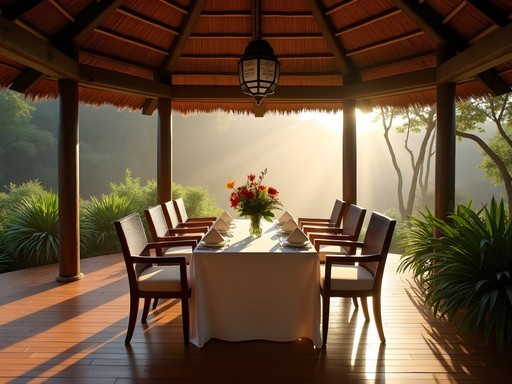
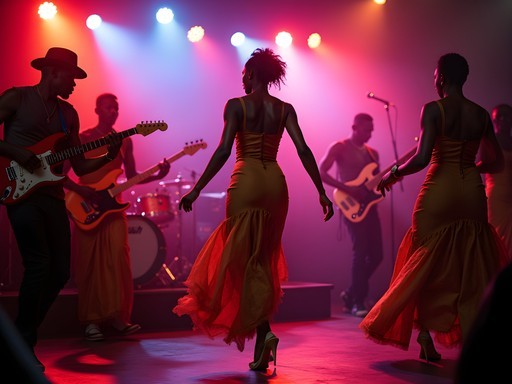
Comments
CultureHunter
The section on Congolese rumba music brought back memories! Saw Papa Wemba perform years ago. Unforgettable!
Hannah Woods
Excellent piece, Carlos. What struck me most about Kinshasa was exactly what you captured—that juxtaposition of challenge and creativity. From a practical standpoint, I found the city requires more patience and flexibility than most destinations. Public transportation is an adventure in itself, and infrastructure can be unpredictable. But that's also where the authenticity lies. The art galleries in Matonge neighborhood were a highlight for me. I'd also add that having a local contact or guide for your first few days makes a massive difference in understanding the city's rhythms and staying safe.
journeyace
Great write-up. I was there last year and totally agree about the organized chaos vibe. One tip for anyone going—learn a bit of French and Lingala before you go. Even basic phrases made such a difference in connecting with locals and navigating markets. The cuisine section is spot on, especially about trying the street food.
adventureone9491
Good call on the language tip!
adventureone9491
WOW this is going straight to my bucket list!! The craft beer scene sounds so interesting, I had no idea that was happening in Kinshasa. The whole article just makes me want to book a flight right now. Thanks for sharing this perspective on the city!
Bella Harper
Carlos, this brought back so many memories! I visited Kinshasa in 2019 and was completely blown away by the art scene around Académie des Beaux-Arts. The energy there is unlike anywhere else I've traveled. I spent an entire afternoon watching artists work in their studios, and the conversations about resilience and creativity were profound. The music scene at night—especially the rumba clubs—was absolutely electric. Did you make it to any of the live music venues? I'm curious how the cultural scene has evolved since my visit.
journeyace
Which rumba clubs would you recommend? Planning a trip for April
Bella Harper
Definitely check out Chez Ntemba if it's still operating! The atmosphere there was incredible.
travellife
Love the photos!
winterguide
This looks amazing! How did you get around the city? I've heard mixed things about safety for solo travelers. Any specific neighborhoods you'd recommend staying in?
Hannah Woods
Gombe is your safest bet for accommodation. I stayed there for a week and used a mix of taxis arranged through my hotel and motorcycle taxis during the day. Just avoid traveling alone after dark and you'll be fine.
winterguide
Thanks! Really helpful
SafariDreamer
Great article! How's the internet connectivity there? Need to stay connected for work while visiting.
wanderlustbuddy
It's pretty spotty! I bought a local Vodacom SIM which worked OK in central areas. Major hotels have decent WiFi but don't expect reliability everywhere.
Taylor Moreau
Carlos, excellent piece on a city that deserves more nuanced coverage. As someone who travels to Kinshasa regularly for business, I appreciate your balanced portrayal of both challenges and cultural richness. The section on navigating the urban landscape is particularly useful. I'd add that pre-arranging transportation is essential - the motorcycle taxis (wewa) are authentic but not ideal for newcomers. For those planning a visit, the Kempinski Hotel offers excellent business facilities and cultural excursion arrangements. The craft beer section was a pleasant surprise - Bracongo's experimental batches are worth seeking out!
adventure_seeker_23
Going to Kinshasa next month for work. Any restaurant recommendations beyond what's in the article? First time in DRC!
Taylor Moreau
Try Le Café Conc' for excellent fusion cuisine in a secure setting. For local dishes, Chez Gaby offers authentic Congolese food - their fish moambe is exceptional. Book in advance and have your hotel arrange transport.
GlobeTrekker88
Those photos of the street art are incredible! The colors! 😍
Venture X
Premium card with 2X miles, $300 travel credit, Priority Pass